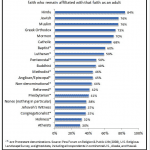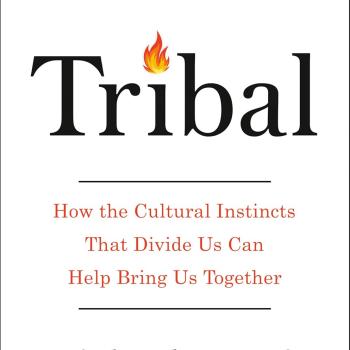What does politics have to do with our doctrine of Scripture?
Mark Noll, one of evangelicalism’s premier historians, takes up this question in Christian Political Witness, which I reviewed previously (see Part 1, Part 2). Noll points out a phenomenon that should trouble to us all.
 In essence, the church compromises its Christian political witness when it settles for what is merely true, biblically speaking. In other words, Christians too frequently justify their political activity (or inactivity) on the basis of doctrines that are true yet otherwise irrelevant to a given social issue.
In essence, the church compromises its Christian political witness when it settles for what is merely true, biblically speaking. In other words, Christians too frequently justify their political activity (or inactivity) on the basis of doctrines that are true yet otherwise irrelevant to a given social issue.
Accordingly, we sacrifice politics when we settle for the Bible. By “politics,” I refer to that which concerns the exercise of social power, i.e. public influence.
(This is the second in a series of posts where I apply insights from Christian Political Witness. Click here for post #1.)
Confusing Biblical and Political Authority?
In chapter 2, Mark Noll presents a brilliant essay and case study of the ways that the Bible was used both to defend and oppose slavery just prior to the American Civil War. He observes that people from both sides of the argument used many of the same texts and arguments to draw opposite conclusions on a heated political issue. In the process, Noll points out a number of disturbing patterns of biblical interpretation and application.

Most significantly, he highlights a tendency among Christians (from both sides of the slavery debate) to use the doctrine of biblical inerrancy as justification for their political dogmas.
In effect, preachers and theologians confused divine inspiration with biblical interpretation. Noll establishes the point clearly:
Recognizing who has authority does not ensure that we will recognize what we ought to do.
Interpreters often appeal to the “plain meaning” of a text. In fact, political ideas are often supported using “arguments from silence.” In other words, when the Bible does not actually state some idea, readers tend to provide their own cultural logic so that they can “infer” what the biblical author “obviously” means. The problem is compounded when Christians’ political rhetorical is laced with biblical language. As a result, people can get the impression that one rejects the Bible if they reject a certain political view.
Repentance as Taking Responsibility
What are we to do when churches fail to offer a political witness consistent with Scripture?
Jennifer McBride offers an answer in Ch. 10 (“Repentance as Political Witness”). In short, Christians should repent of arrogant “triumphalism” that does not question the correctness of their cultural political.
If believers would humbly admit the Church’s many failures (now and in history) to offer a distinctly Christian political witness, then we/they would become more teachable and find better solutions to problems in the world. In addition, Christians would finally gain a measure of credibility in the eyes of non-Christians who have long worked to address social problems while the church pressed on with evangelism, ecclesiological infighting, and general apathy.
She depicts Christ’s crucifixion as an act of repentance of sorts whereby Christ takes responsibility for the world’s sin even though he is not guilty of that evil. Some people will not be satisfied with her line of argument; yet, her point deserves a hearing.
Her emphasis is on taking responsibility, not on blame.
This creative solution needs more discussion. It has potential to allay the defensiveness of some Christians who resist taking on an attitude of repentance.
For now, I have tried to give a more detailed overview of these two chapters. In a coming post, I will apply this a Chinese context.




















